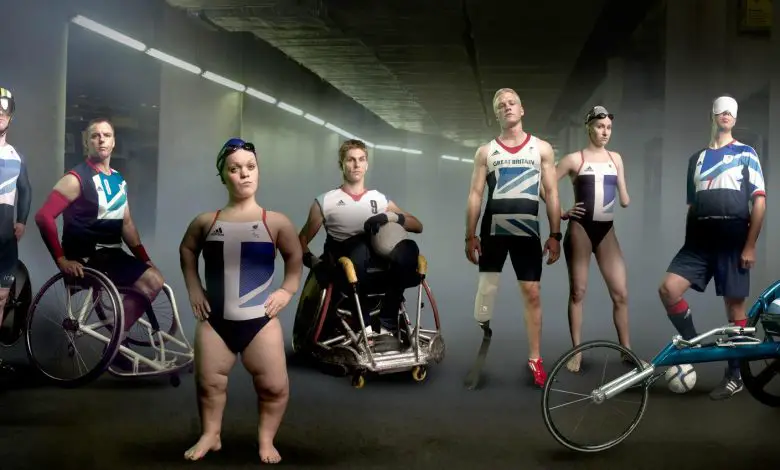
Paralympic Games 2012: the legacy and impact
It’s been just over a month since the Paralympic Games and Jonathan Wade, who runs Innovative Minds at Work (which aims to break down barriers faced by disabled people) talks to Disability Horizons about the impact of the Paralympic Games.
In my mind there is no doubt about it, the Paralympic Games have shattered negative stereotypes of disabled people, delivering positive role models and heroes. It has shown us images of what disabled people are capable of, regardless of the barriers they may have faced. It has demonstrated that we are not disabled but able; all it takes is determination and courage to challenge ourselves and to show our capabilities.
The coverage by Channel 4 and the presenters were beyond reproach, delivering thrill after thrill for many millions of people; it was the most highly viewed Paralympic Games ever. It delivered so much more than entertainment. It brought heroes and heroines into our homes, making us gasp, smile, cheer and debate. I am not shy in saying – and I mean this from my heart – that the Paralympic Games have changed my life; changed my views about myself and changed what I believe I am capable of, in life and in business. I am in awe of the Paralympians one and all, winners and participants alike.
But although it has touched many facets of our lives, it’s the legacy for people with disabilities within the workplace that I want to discuss. For a couple of generations, society has viewed many disabled people as ‘benefit scroungers’ who just want to sit on their backsides and live off the hard work of others. How many dozens of documentaries have we seen supposedly uncovering people pretending to be disabled, or exaggerating a disability in order to claim benefits, and in the process tarring all disabled people with the same brush before the nation.
Then, at the other extreme we have seen the achievements and hard work that goes into the Paralympic Games. We’ve had weeks of positive images of Paralympians defying their limitations to make themselves limitless, turning ability from the dust of inability. People with no legs become instantly recognisable in millions of households thanks to the images of the pure speed at which their blades sliced the air. I even witnessed a man without arms destroy the competition in the aquatics centre in a whole body motion that would have made the most agile of dolphins turn from their silver grey to green with envy.
But amongst these extremes of stereotypes and ‘superhumans’, where are the disabled working and middle classes? Perhaps the disabled working class have simply been enlisting a survival tool that is commonly used; to become the unseen, blending into work places, supported by Access to Work, Disability Living Allowance and open minded employers. There may lie another side effect of the Paralympic Games, to make more employers see people for what they are capable of, not for their limitations, and perhaps even seeing beyond the lumps of metal strapped to our bottom, the visual and outward signs of disability.
These are how the majority of disabled people live, those who just want to be allowed to live their lives, pay their taxes, raise their family and do what everyone else does, but without making waves to break upon the beach of social awareness. Although I cannot condemn people for taking this approach, as it is a valid stance to take, I believe that we have been shown a different way, especially when it comes to disability in business.
The Paralympics have shown that disabled people can stand up and be counted, something everyone needs to be aware of. That we, as a group of disabled workers, shine because we are not only fulfilling our employment contracts but also, at the same time, overcoming our barriers. We achieve more each day than the majority of our able bodied colleagues; often just being able to get to work is a magnificent achievement. We have been shown, by people like Ellie Simmonds, a proud way to work and to show that we are achieving despite our disability… and we are proud of it.
It is time the working disabled class starts to claim their place at the head of the attainment pile, leading the way as we know, with every breath we take, what it really means to achieve every single day, as we have to battle the very structure of the society to even start working.
The Paralympics Games have lit the blue torch paper, encouraging and showing us that we can turn to our employers and our colleagues and say “yes we are disabled, yes we are successful and you WILL respect us for our courage, our determination and our capability”. Capability will be forever the new word for disability. We are no longer in the shadows hiding. Our darkness has be banished by the light, the raging fire that began with a spark from the 2012 Paralympic Games and is now our torch to raise high and celebrate our achievements.
By Jonathan Wade
You can visit Jonathan’s blog, Disability in Business, for more information and articles about disability and work.
Check out…
• Paralympic Games 2012: your highlights.
• Doing Sport Differently : a guide to disability sport and exercise.
• The Last Leg : a review of the alternative Paralympics show.
Let us know what you think of the legacy of the Paralympic Games. Email us at editor@97c.026.myftpupload.com, tweet us @DHorizons or send us a message on Facebook.
